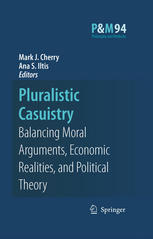

Most ebook files are in PDF format, so you can easily read them using various software such as Foxit Reader or directly on the Google Chrome browser.
Some ebook files are released by publishers in other formats such as .awz, .mobi, .epub, .fb2, etc. You may need to install specific software to read these formats on mobile/PC, such as Calibre.
Please read the tutorial at this link: https://ebookbell.com/faq
We offer FREE conversion to the popular formats you request; however, this may take some time. Therefore, right after payment, please email us, and we will try to provide the service as quickly as possible.
For some exceptional file formats or broken links (if any), please refrain from opening any disputes. Instead, email us first, and we will try to assist within a maximum of 6 hours.
EbookBell Team

4.7
46 reviewsBaruch A. Brody has been one of the most important voices in bioethics over the last several decades, asking new and challenging questions about a range of problems, examining recalcitrant issues in novel ways, always with the goal of offering practical solutions to complex problems. This volume presents a sustained philosophical analysis of Brody’s contributions to biomedical ethics. The essays in this volume compass epistemological, methodological, and topical contributions to bioethics, including both application and criticism of Brody’s normative moral theory – pluralistic casuistry – Jewish medical ethics, human embryo transfer, medical futility, life and death decisions in pediatrics, euthanasia and end-of-life decision-making, the obligations of clinical researchers toward study participants, and professional integrity.
Done well, philosophical work can clarify complex issues, facilitate creative problem solving, and lead to real-world solutions to difficult situations. Each contributor carefully and critically explores Brody’s writings in biomedical ethics and the philosophy of medicine, illustrating his appreciation that thorough and critical scientific research and philosophical analysis are central to reining in the untutored human desire to ameliorate pain and suffering so that medical treatments and health care policy do more good than harm.